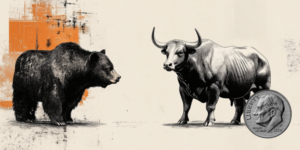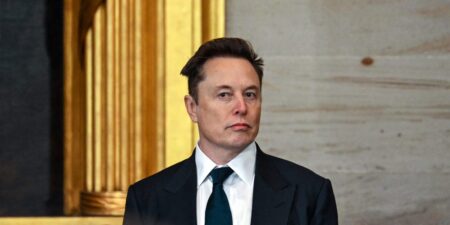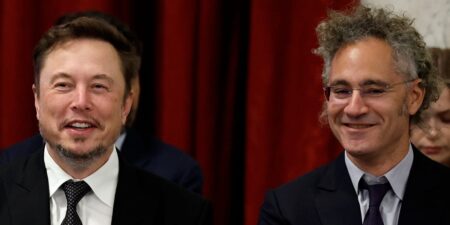- Intense pressure from Chinese rivals drove innovation at Uber, cofounder Travis Kalanick said in a recent podcast episode.
- He said competitors copied what Uber rolled out at dizzying speeds.
- Eventually, persistent copying led to genuine creativity, he said, allowing China to out-innovate some US companies.
In the thick of the 2010s, Uber was waging “all-out war” in China.
Travis Kalanick, Uber’s cofounder who resigned in 2017, said that the sheer speed at which Uber’s Chinese competitors copied the company’s innovations was maddening.
And the way he sees it, that relentless approach eventually gave way to true innovation — the kind of ingenuity recently displayed by Chinese AI startup DeepSeek that sent shockwaves through Silicon Valley.
“There’s no way I could express the frenetic intensity of copying that they would do on everything that we would roll out in China,” Kalanick said on a recent episode of the “All-In Podcast.” “And it was so epically intense that I basically had a massive amount of respect for their ability to copy what we did.”
In 2016, the company was in a fierce battle for market share with Chinese rideshare rival Didi Chuxing, to which Uber would later sell its China operations in 2016. But before DiDi absorbed Uber’s China business, the pressure to outpace each other created a veritable arms race.
“I just couldn’t believe it. We would do real hard work, make it, we’d dial it, and it would be epic and it would be awesome,” Kalanick said. “We’d roll it out, and then like two weeks later — boom! They’ve got it. A week later — boom! They’ve got it. And, of course, I used that to drive our team.”
The competition pushed Kalanick to recruit “over 400 Chinese nationals,” which he said created a sort of subculture within Uber’s Silicon Valley office.
“We had a whole floor for the China growth team and it was primarily Chinese Nationals,” Kalanick said. “We had billboards on the 101 in Silicon Valley in Chinese — Uber billboards to join our team in Chinese — to serve the homeland, right? It was like an all-out war. It was really epic.”
Eventually, Kalanick said, that furious pace of development — and getting used to working at that speed — gave way to innovation.
“What happens is, when you get really, really good at copying, and that time gets tighter, and tighter, and tighter, and tighter, and tighter, you eventually run out of things to copy,” Kalanick said. “And then it flips to creativity and innovation.”
In some cases, Kalanick said that Chinese companies are now getting ahead of their American counterparts.
“But as they exercise that muscle, it gets better, and better, and better,” Kalanick said. “So, if you want to know about the future of food, like online food delivery, you don’t go to New York City — you go to Shanghai.”
In part, Chinese companies are well-positioned to take advantage of circumstances that are unique to their country, Kalanick said.
“You know, they’re taking advantage of their economics on labor and things like this,” Kalanick said. “It wouldn’t exactly work that way here, but a lot of the innovation you will see coming out on Uber Eats or DoorDash — like the stuff that’s coming out now — is stuff that existed three years ago, four years ago in China. Maybe longer.”
CloudKitchens and DiDi Chuxing did not immediately respond to requests for comment.
At some point along the way, Chinese businesses went from lagging behind to setting the bar on innovative features, Kalanick said.
“Eventually you cross that threshold of copying, and you’re innovating, and then you’re leading,” Kalanick said. “And I think we see that in a whole bunch of different places.”
Read the full article here
















